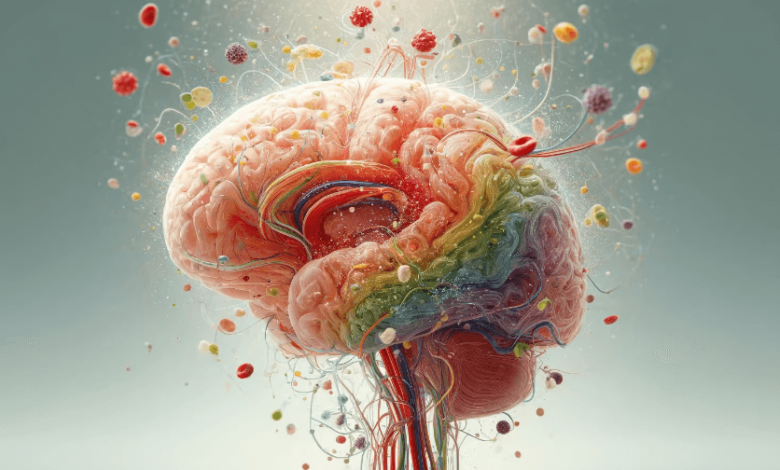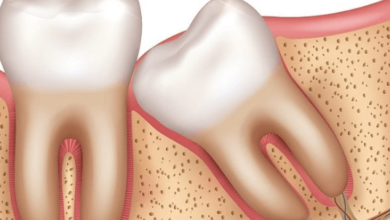Enhancing Mental Agility: Overcoming Challenges for Better Cognitive Flexibility

In today’s fast-paced world, mental agility is more important than ever. With so many tasks competing for our attention, having the ability to think creatively, solve problems efficiently, and adapt quickly can make all the difference. But what exactly is mental agility, and why should you care? This blog post will help you understand its significance and provide practical tips to enhance cognitive flexibility.
Understanding Mental Agility
Mental agility refers to the ability to switch between tasks or thoughts seamlessly and efficiently. It’s not just about multitasking; it’s about adapting to new situations and finding innovative solutions to challenges. Think of it as having a flexible mind that can bend and stretch in different directions without breaking.
In everyday life, mental agility can mean the difference between feeling overwhelmed by challenges or tackling them with ease and confidence. Whether you’re juggling multiple work projects or navigating personal relationships, enhancing your mental agility can improve your overall well-being.
Being mentally agile isn’t something you’re merely born with. Like any other skill, it can be developed and strengthened over time. By actively working on it, you can build resilience and adaptability, making life’s hurdles seem less daunting.
The Science Behind Cognitive Flexibility
Cognitive flexibility, a key component of mental agility, involves the brain’s ability to shift focus and adapt to new information. It allows us to adjust our thinking and behavior in response to changing environments or unexpected challenges.
Neuroscientific research has shown that cognitive flexibility is rooted in the brain’s prefrontal cortex. This area governs executive functions, decision-making, and problem-solving. When we practice cognitive flexibility, we create new neural pathways, enhancing our brain’s adaptability.
Studies have revealed that individuals with higher cognitive flexibility tend to perform better under stress and exhibit improved problem-solving skills. This adaptability is crucial in both personal and professional settings, providing a significant edge in today’s rapidly changing world.
Real-World Applications of Mental Agility
Mental agility isn’t just a buzzword; it’s a critical skill with practical applications in everyday life. In the workplace, it enables you to switch between tasks effortlessly, manage stress effectively, and think on your feet in high-pressure situations.
For students, mental agility enhances learning capabilities, making it easier to absorb new information and adapt to different teaching styles. It also aids in creative problem-solving, allowing students to approach assignments from unique perspectives.
In personal relationships, cognitive flexibility helps us understand others’ viewpoints, resolve conflicts more effectively, and adapt to changes in dynamics. By developing mental agility, we can improve communication and strengthen our connections with those around us.
Building a Mental Agility Routine
To enhance mental agility, it’s essential to incorporate activities into your daily routine that challenge your brain and encourage adaptability. Start by dedicating time each day to activities that require focus and concentration, such as puzzles, crosswords, or strategy games.
Another effective way to boost mental agility is by learning a new skill. This could be anything from playing a musical instrument to trying your hand at canyoneering in Zion National Park. Engaging in novel experiences stimulates the brain, encouraging the formation of new neural connections.
Additionally, practicing mindfulness through meditation or yoga can improve mental agility by helping you develop greater awareness and control over your thoughts. This increased awareness allows you to remain calm and focused in challenging situations, enhancing your cognitive flexibility.
Overcoming Common Barriers
While developing mental agility is achievable, there are common barriers that can hinder progress. One major obstacle is the fear of failure, which can discourage us from trying new things or taking risks. Overcoming this fear requires a shift in mindset, viewing failures as opportunities for growth and learning.
Stress and burnout can also impede mental agility. To combat these, it’s crucial to prioritize self-care and establish healthy boundaries. Ensuring you get enough sleep, exercise regularly, and maintain a balanced diet can significantly impact your brain’s ability to function optimally.
Lastly, a fixed mindset can stifle cognitive flexibility. Adopting a growth mindset—believing that abilities can be developed through dedication and hard work—can help you overcome this barrier and unlock your brain’s potential.
Enhancing Mental Agility Through Creativity
Creativity plays a vital role in enhancing mental agility, as it encourages the brain to think beyond conventional boundaries and explore new possibilities. Engaging in creative pursuits, such as painting, writing, or improvisation, can stimulate the brain and improve its adaptability.
Incorporating creative exercises into your daily routine can help cultivate mental agility. Set aside time each day for creative exploration, whether it’s sketching, writing a short story, or brainstorming innovative solutions to a problem you’ve been facing.
Surrounding yourself with diverse perspectives and experiences can also foster creativity. Attend workshops, engage in discussions with people from different backgrounds, and expose yourself to new cultures and ideas to broaden your cognitive horizons.
Leveraging Technology to Boost Cognitive Flexibility
Technology can be a powerful tool in developing mental agility. Numerous apps and online platforms are designed to enhance cognitive flexibility through brain training exercises and mental challenges.
Apps offer various exercises that target different aspects of cognitive flexibility, such as memory, attention, and problem-solving. Incorporating these tools into your routine can provide a structured approach to improving mental agility.
Additionally, using technology to stay organized and manage tasks can free up mental bandwidth, allowing you to focus on more critical challenges. Digital calendars, to-do lists, and productivity apps can help streamline your workflow and reduce cognitive overload.
Cultivating a Supportive Environment
Creating an environment that fosters mental agility is crucial for success. Surround yourself with supportive individuals who encourage growth and challenge you to push your limits. Engage in open-minded discussions and seek feedback from peers to gain new perspectives and insights.
Establishing a culture of continuous learning within your workplace or community can also promote mental agility. Encourage team members to share knowledge, attend workshops, and collaborate on projects, fostering an atmosphere of innovation and adaptability.
Finally, creating a physical environment that minimizes distractions and promotes focus can enhance cognitive flexibility. Ensure your workspace is organized, comfortable, and conducive to productivity, allowing you to concentrate on developing mental agility.
Measuring Progress and Celebrating Success
Tracking your progress in developing mental agility can provide valuable insights and motivation to continue your efforts. Set specific goals and regularly assess your performance through self-reflection or cognitive assessments.
Celebrate your successes, no matter how small, to reinforce the importance of mental agility in your life. Recognizing your achievements can boost confidence and inspire you to continue pushing your cognitive boundaries.
By measuring your progress and celebrating milestones, you’ll maintain momentum in your mental agility journey, ultimately reaping the benefits of enhanced cognitive flexibility.
Conclusion
Developing mental agility is a lifelong process that requires dedication and practice. By incorporating the strategies and techniques outlined in this blog post, you can enhance your cognitive flexibility and unlock your brain’s full potential.
Remember, the key to success lies in consistency and perseverance. Continue challenging yourself, seeking new experiences, and cultivating a growth mindset to thrive in today’s dynamic world.






